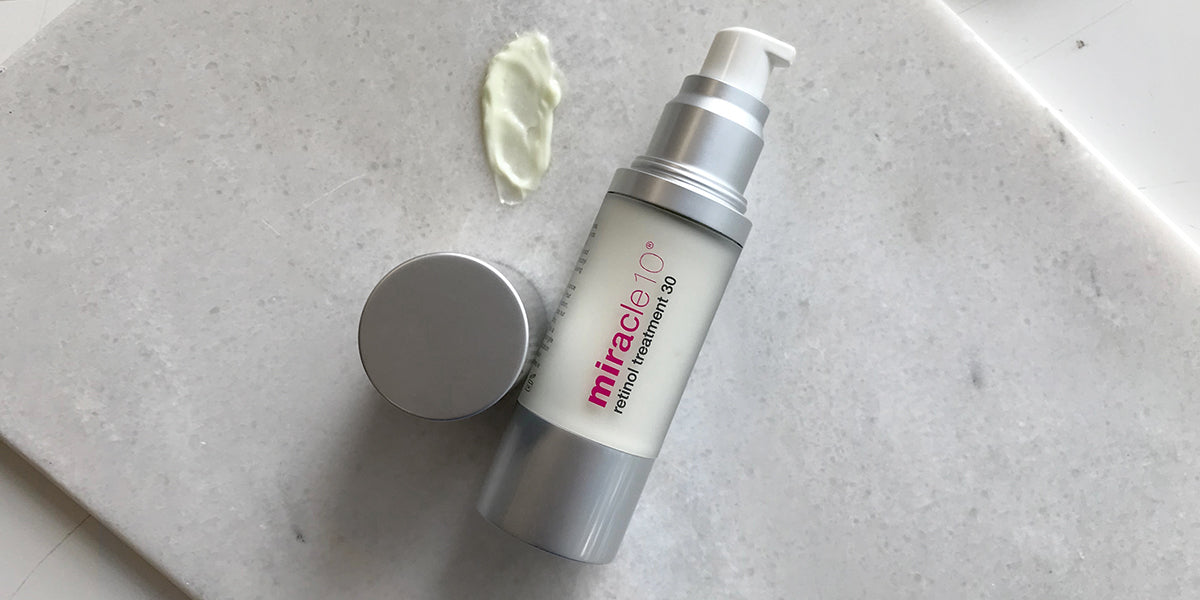We'd bet you've probably heard this R-word used once or twice or a few hundred times from your fave influencer or beauty brand. There's no doubt this anti-ageing superstar is a must-add to your current routine, as long as you know how and what you're applying to your skin. So today, we're talking all about retinoids and their many forms.
Retinol and its importance in your skincare regime seems to constantly stay top-of-mind with companies and bloggers alike and yet, do we even know what retinol is? When using a powerhouse ingredient like retinol, "sort of, kind of, not really?" isn't the response we're hoping for. So, we've hit the books to share with you everything you need to know about retinoids and busting a few myths while we're at it.
Let's go over the basics: Retinoids are variants of vitamin A. There are many types of retinoids with the most potent ones requiring a prescription from your doctor or dermatologist. Prescription retinoids include tretinoin, tazarotene and adapalene. However, with consumers demanding over-the-counter alternatives, skincare companies have been able to formulate retinoid products with retinol.
The difference between retinol and the other variants of retinoids comes down to its strength (or amount of retinoic acid = aka the secret sauce) allowing retinol products to be purchased without a prescription and generally appropriate for all skin types. Regardless of the type you're using, they all stimulate your skin's cell turnover cycle to naturally shed away dead skin and boost collagen production.
Myth: If you have sensitive skin, you can't use retinol because it's far too irritating.
Truth: If you have sensitive skin, look for a gentle formula with a more diminutive concentration of retinol and start by introducing the product slowly to avoid any irritation. Over time, retinol can actually improve skin sensitivity as it strengthens your skin barrier. Just make sure to grab a well-formulated product infused with soothing vitamins and botanicals, like our Retinol 30 which has Defensil Plus - a unique blend of ingredients with anti-inflammatory and skin-repairing properties.
Myth: Retinol won't make a difference to younger-looking skin and should only be used after your 20s.
Truth: Not only is retinol often prescribed to teenagers with severe cystic acne and an amazing acne-fighter for hormonal adult-acne, introducing retinol at a younger age (say, early 20s) will only benefit you throughout the ageing process. Retinol will help keep your cell turnover rate in great shape while preventing early signs of ageing. We'd say that's a pretty amazing reason to start early!
Myth: Retinol thins your skin over time and causes your skin to burn easier while in the sun.
Truth: Retinol has been proven to strengthen the skin's epidermis (outer layer) along with the dermis (inner layer), working from the inside out. As for the sunshine debate, contrary to the warnings online, retinol does not make your skin more susceptible to the suns rays. Retinol itself does not sensitize your skin from the sun because it's actually breaking down when exposed to sunshine, making it way less effective. That being said, diligent sun protection is always a necessity regardless of what treatments you use.

